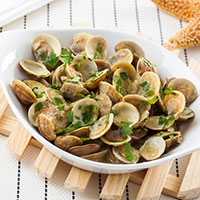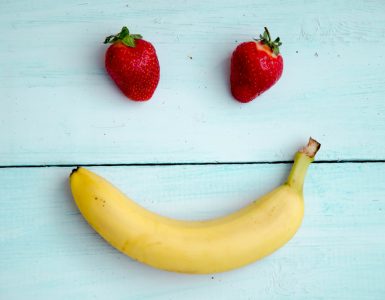| Vitamin name |
Vitamin B12 |
| What’s it used for? | Energy production; healthy nervous system; prevention of pernicious anaemia |
| Best food sources | Meat, liver, kidneys, fish, eggs, dairy products |
| How much do I need? | NRV is 2.5 µg per day* |
| Need to know | Vitamin B12 is only found in animal products, therefore vegans may be deficient |
*A Nutrient Reference Value or NRV is the recommended level set by the UK Department of Health for daily nutrient intake
Vitamin B12
Vitamin B12 is also known as cobalamin because it’s the only vitamin that contains the essential mineral, cobalt. It is one of the family of B vitamins but is required in much smaller amounts than the other members. Unlike the other B vitamins, deficiency is common, due to absorption problems or insufficient dietary intake.
Why do I need it?
Vitamin B12 is known as the ‘energy vitamin’ as it helps to metabolise proteins, fats and carbohydrates from the food we eat. Vitamin B12 is essential for the health of the nervous system and for aiding pernicious anaemia, a serious neurological condition associated with a deficiency.
Hydrochloric acid, naturally produced in the stomach, is needed for the absorption of vitamin B12. Also an enzyme known as ‘intrinsic factor’ is produced by the stomach in order to absorb vitamin B12; this can be impaired in some people and B12 injections are often prescribed in order to treat or prevent pernicious anaemia.
Unlike the other B vitamins, it can be stored in the body, hence deficiencies can often take many years to develop.
Vitamin B12 is also known as the ‘red vitamin’ as it’s naturally found as a red crystalline compound and is very important for the blood. It also works closely with vitamin B6 and folic acid in the metabolism of homocysteine (an amino acid), which in high levels may be a marker for heart disease and Alzheimer’s disease.
Best food sources
Vitamin B12 is only found in animal products such as meat, offal, dairy, fish and eggs. Vitamin B12 can be produced by friendly bacteria in the guy, but this is not always optimal due to individual dietary and lifestyle factors.
Foods high in vitamin B12

Lamb’s liver – 104 µg per 100g

Clams – 98 µg per 100g

Lamb’s kidneys – 63 µg per 100g

Oysters – 18 µg per 100g

Sardines – 17 µg per 100g
Are you getting enough?
As deficiency is commonplace, due to poor absorption and low intake from the diet, injections of vitamin B12 are often required. High intakes of folic acid, which is readily available in the diet, can often mask symptoms of vitamin B12 deficiency. Symptoms generally start with those concerning the nervous system such as mood changes, lack of concentration and feelings of low mood and depression.
Pernicious anaemia is the most common deficiency disease which leads to fatigue and weakness.
Did you know?
There are no known side effects from long-term use of vitamin B12Vitamin B12 is suitable to take during pregnancy and breastfeeding at recommended dosages – consult your healthcare professional for advice
It is frequently deficient in the elderly, partly because the body produces less hydrochloric acid as we age
Vegans may need to take supplementation as their diet will not contain any vitamin B12
For all the latest research on Vitamin B12 click here
Try this
Vitamin B12 is found in the Alive! range of multi vitamins and minerals.
For more information visit www.feelaliveuk.com
You can also follow Alive! on Twitter for general health and wellbeing tips: @feelaliveuk







